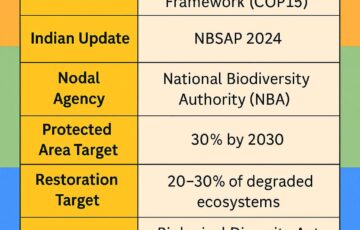India’s Growth Outlook Marred by Persistent Challenges
India’s Growth Outlook Marred by Persistent Challenges
Why in the News ?
India’s GDP showed a 6.5% growth in FY25, supported by late momentum, but concerns remain over weak private investment, rural demand, and global uncertainties. Analysts highlight that sustained reforms and domestic consumption recovery are crucial for long-term stability.
Domestic Growth: Mixed Signals
- India’s real GDP growth in FY25 stood at 6.5%, aided by a surge in the last quarter.
- Resilience in services, some gains in agriculture and industry are noted.
- Persistent issues include weak private capital expenditure (capex), stagnant rural demand, urban consumption stress, and slow household credit.
- Despite past reforms like GST, Insolvency Code, and corporate tax cuts, private investments haven’t significantly picked up.
- Gross Fixed Capital Formation remains at 25% of GDP, unchanged since 2014.
Policy Interventions: Limited Impact
- The RBI cut repo rates by 100 basis points this year to spur demand.
- The Centre’s heavy spending on infrastructure aimed to crowd-in private investments.
- However, companies hesitate to invest due to slow consumption growth and comfort at 75% capacity utilization.
- Job creation and wage growth are not keeping pace with profitability.
- Labour Code reforms are stalled; 2025 reforms outlook appears dim despite fewer elections.
External Pressures and Future Outlook
- Global uncertainties from US tariffs, wars, and a weak Chinese economy could strain exports.
- Trade diversions and supply chain shifts may benefit India, but require strategic positioning.
- India’s long-term growth estimated at 6.5%, but this may not suffice for job creation and reducing inequality.
- Scope remains to push for education, skilling, and lower protectionist trade policies to drive sustainable growth.
- A comprehensive demand analysis exercise could help identify areas for targeted policy interventions.






